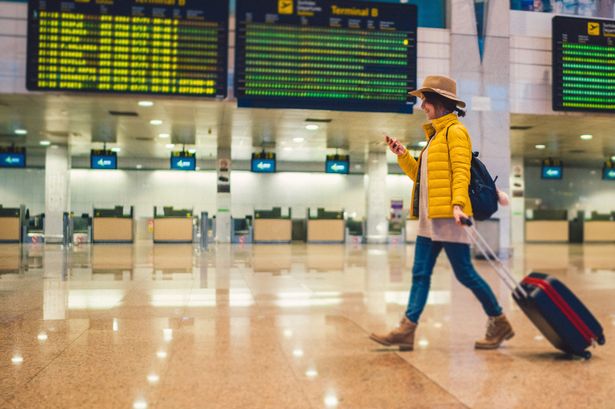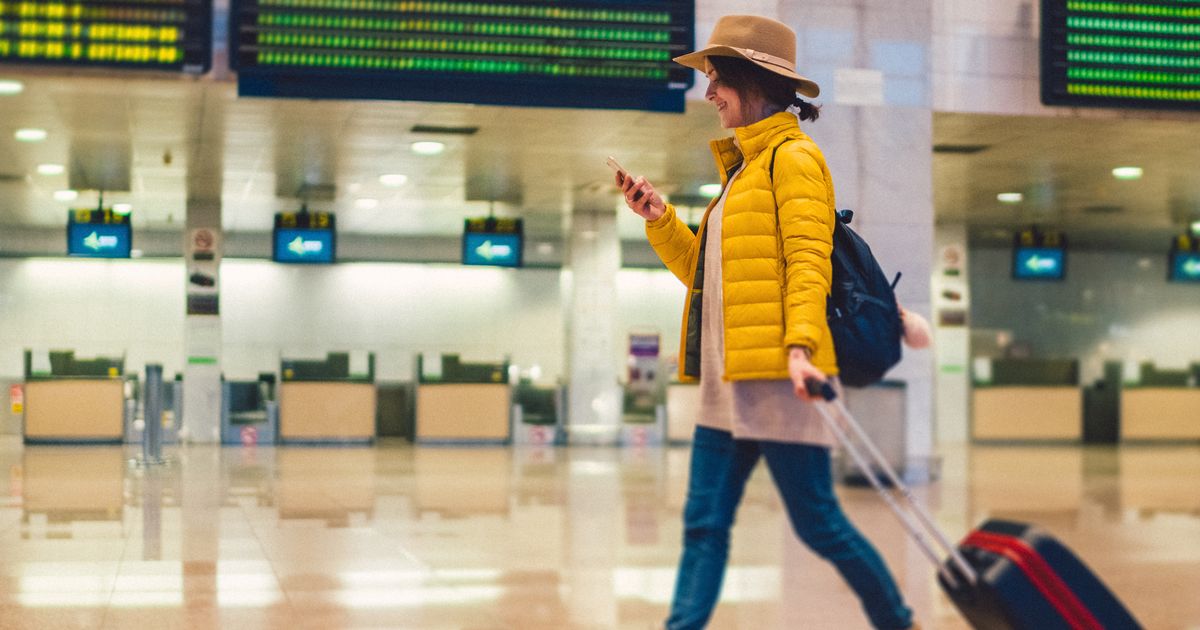The European Council approved the controversial new rule on Thursday – which will see passengers charged for any luggage that doesn’t fit under the seat in front of them New rules about hand luggage are being brought in(Image: Martin DM- Getty Images)
New rules about hand luggage are being brought in(Image: Martin DM- Getty Images)
Brits planning to travel to Spain are being alerted about new cabin bag regulations that could catch out holidaymakers this summer as they budget for their upcoming trips.
Under a contentious new rule that “ends the legal uncertainty” causing airlines to lose money in legal disputes, travellers will now be charged for any luggage that doesn’t fit under the seat in front of them.
Following approval from the European Council on Thursday, airlines are now allowed to charge passengers for bringing trolley bags that need overhead storage.
As part of changes to EU passenger rights, the new hand luggage rules permit carriers to impose fees for larger cabin bags stored in overhead lockers.
Only smaller bags such as backpacks or handbags, with maximum dimensions of 40x30x15cm, will be permitted in the cabin free of charge, reports the Express.
Spain, Germany, Slovenia, and Portugal voted against the changes, warning that the move could result in passengers paying extra for almost any cabin bag. The Spanish government criticised the new rules as “too restrictive.”
However, the Airline Association (ALA) has endorsed the new rules, stating that the change provides much-needed clarity on baggage fees and will help reduce the number of legal disputes between passengers and airlines. It stated: “This ends the legal uncertainty and inconsistent rulings we’ve seen across Spain.”
The new regulations redefine what constitutes free hand luggage, restricting it to bags that can fit under the seat in front. This means any larger items will now incur an extra charge.
These changes also extend to delayed flights – holidaymakers will no longer receive compensation for a delay of just a few hours. The updated rules stipulate that the threshold for flight delay compensation has been increased.
The previous three-hour limit has been extended to between four and six hours, depending on the length of the flight.
The compensation amount Brits can expect to receive for these delays will also be reduced. Passengers are entitled to €300 for shorter flights and €500 for longer ones, as long as the delay exceeds the new time limits.
However, there is a glimmer of hope that these changes may not be permanent despite the Council’s support. The proposals are now heading to the European Parliament, where MEPs have the power to approve, reject, or suggest amendments before the rules are implemented.
